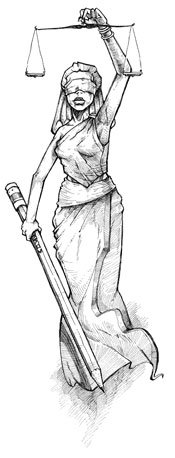Literary contests have long been a topic of spirited dialogue among writers. Book contests, in particular, generate heated discussions because they have become the dominant model for small presses to subsidize the publication of books by emerging writers, especially poets. Unfortunately, it is not the quality of the award-winning writing that gets people talking. These days it is the way in which contests are run and the manner in which winners are chosen—or not chosen, as the case may be—that attract attention.

Remember W.S. Merwin’s announcement that he was unable to find a “manuscript that maintained a level of achievement meriting its publication” from nearly six hundred submissions to the Yale Series of Younger Poets in 1997? According to John Kulka, senior editor at Yale University Press, it was the fourth time in the contest’s eighty-six-year history that a judge did not choose a winner. Since then, of course, several other contests have come up short of a winner—the Zoo Press Award for Short Fiction, the Association of Writers & Writing Programs (AWP) Award Series in Short Fiction, and the Bakeless Literary Publication Prize in creative nonfiction among them. What fueled the debate wasn’t just the fact that these contests did not yield a winner, but that the sponsoring organizations did not refund entry fees.
The amount of money at stake in any given literary contest may seem slight, but to those who spend hundreds in entry fees each year, the cost of entering raises the already high expectation that contests will be administered fairly. Recently, what was once considered a mutually beneficial system for selecting, publishing, and promoting contemporary writing has been seriously questioned, as allegations of favoritism, and even of nepotism, are leaving many writers suspicious of the contests they once hoped to win.
The Web site www.foetry.com fueled those suspicions when it was launched anonymously in April 2004 with the purpose of exposing fraudulent contests. Among the allegations published by Foetry, which is touted as the “American Poetry Watchdog,” are charges that certain contest judges have been giving awards to close friends or students. Perhaps because it “named names,” Foetry garnered attention in the New York Times, the Boston Globe, and on the radio show Talk of the Nation.
Foetry remained anonymous for about a year before an anti-Foetry blog (whoisfoetry.blogspot.com) revealed the identity of its creator. Alan Cordle, a reference librarian at Portland Community College in Oregon, admitted a few months ago that he launched the site. Incidentally, Cordle’s wife, the poet Kathleen Halme, won the 1994 Contemporary Poetry Series sponsored by the University of Georgia Press, one of the contests that Foetry has since deemed corrupt. Cordle insists that his wife was not involved in the Web site, and that her book was chosen legitimately.
Like it or not, Foetry got people talking about some important issues. In response to the increasingly common discussions among the more than four hundred-fifty members of the Council of Literary Magazines and Presses (CLMP), executive director Jeffrey Lependorf decided to schedule a series of formal symposia with writers, editors, and publishers in order to establish a set of guidelines for contests, including a code of ethics, which he hopes to publish on the CLMP Web site this fall.
As a first step, CLMP hosted a roundtable discussion, titled “The Ethics of Competition,” in March at the annual conference sponsored by AWP. It included Lependorf, the panel moderator; Charles Flowers, associate director of the Academy of American Poets; Sarah Gorham, president of Sarabande Books; and Stephanie G’Schwind, editor of the Colorado Review. I was also invited to be on the panel because I edit the Grants & Awards section of this magazine.
Among the questions asked was whether a judge is ethically obligated to recuse herself from considering the work of a former student. And what is a “former student,” anyway? Is it someone who studied with the judge full-time at a university? Does having attended a single two-hour workshop count as having been a student? Is having studied in the English department where that judge teaches too close an affiliation? The purpose of the panel was more about articulating the questions than coming up with the answers.
In May, a little less than two months after the roundtable discussion at AWP, Foetry posted a report on the event by an anonymous “mole” referred to as Poet K, which included comments by Cordle. The report contained a number of inaccuracies, including misattributed quotes and a reference to me as the panel moderator. This is a relatively minor example of what has led some to a major disappointment with the Watchdog’s modus operandi. While almost everyone agrees that measures need to be taken to ensure fairness in contests, some question Foetry’s posture as an arbiter of ethics.
How comprehensive the CLMP code of ethics will be—and how willingly sponsoring organizations will adopt it—remains to be seen. After all, the ethics of competition is a complicated issue. But there is a simple idea that at least some agree is a good starting point: Make contest guidelines as transparent as possible by providing writers with complete information about each step of the selection process. Of course, this would do little to satisfy writers who feel that the organizations sponsoring the contests they entered—and lost—are guilty of unethical behavior. The three contests mentioned earlier all issued guidelines stating that the judge is not mandated to pick a winner and that entry fees are nonrefundable. But the clear guidelines didn’t assuage the sense of injustice that discontented entrants felt.
As the number of contests continues to grow, so do the options available to poets, fiction writers, and creative nonfiction writers. And it is in choosing an option—of deciding whether or not to enter a contest—where the power rests firmly in the hands of the writer. If writers are able to recognize policies they don’t agree with, they can determine which contests they do not want to enter.
To contribute to the discussion, please e-mail a letter to the editor at editor@pw.org.
Kevin Larimer is the senior editor of Poets & Writers Magazine.








